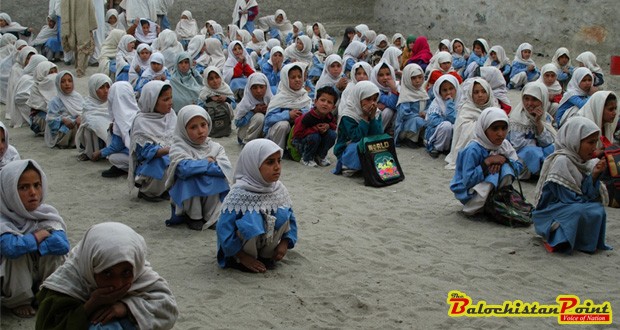QUETTA: The Balochistan Basic Education Programme (BBEP) was inaugurated by the Governor of Balochistan, Muhammad Khan Achakzai at a ceremony held in Quetta Wednesday.
The Minister for Education, Abdul Rahim Ziaratwal, Ambassador of the European Union to Pakistan, Jean-Francois Cautain, UNICEF Representative in Pakistan, Ms. Angela Kearney and many senior officials, donors and development partners were present on the occasion.
BBEP is part of the overall Education Reforms that the provincial government embarked upon under the Balochistan Education Section Plan (2013-2018).
The objective of BBEP is to provide quality education for all children and young people, girls and boys. It also aims at establishing a stronger, more accountable and transparent education governance system in the province.
Governor Balochistan Muhammad Khan Achakzai said: “Quality education not only strengthens an individual, it also strengthens the people as a nation. The education reforms in Balochistan must not ignore children of communities living in rural areas.
“The Basic Education Programme is a comprehensive system for improvement of the education sector which covers multiple aspects of the education sector including revision of text books, training of teachers, upgradation of existing schools and constructing the new ones. We are grateful to the European Union and UNICEF for their contribution and interest in the education of children of Balochistan.”Governor said
BBEP is being implementing by the Department of Secondary Education, with support from the United Nations Children’s Fund (UNICEF) and a generous financial contribution from the European Union which has provided 7.4 million Euros for a period of three years.
The European Union’s earlier support to the Balochistan Education Sector Plan triggered the development of BBEP which reflects EU’s commitment to Balochistan’s long-term reform agenda in education.
“Education is one of the key priorities of the EU in Pakistan, where 32 per cent of our Multi-Annual Indicative Programme is earmarked for Education Sector,” said the Ambassador of the European Union, Jean-Francois Cautain. “In Pakistan, we are currently supporting the governments of Balochistan, Khyber Pakhtunkhwa and Sindh to provide better access to quality education for boys and girls alike.”
While the Government of Balochistan’s education sector reforms have started showing results, a lot more needs to be done as 35 per cent children between the age of 5 to 16 in the province are out-of-school of which 70 per cent are girls. The primary attendance rate is 42 per cent and only 27 per cent of the children who start school, complete grade 5. Significant number of schools, especially those for girls’, lack safe drinking water and sanitation facilities. Finally, too few children learn enough while at school.
“Provision of quality education to all children is one of the Sustainable Development Goals of the United Nations which have been adapted by the Government of Pakistan as Pakistan’s Development Goals,” said UNICEF Representative, Angela Kearney. “Educated children, boys and girls, are the future of Balochistan and UNICEF with generous support from the European Union, is helping the provincial government to implement the education sector reforms to ensure a bright future of the people of this province. The Education Management Information System (EMIS) for which UNICEF has provided technical and operational assistance, is now fully functional and accessible to general public to acquire vital educational statistics from across the province.”
Staff Reporter
Published in The Balochistan Point on April 27, 2017
 Balochistan Point Voice of Nation
Balochistan Point Voice of Nation




